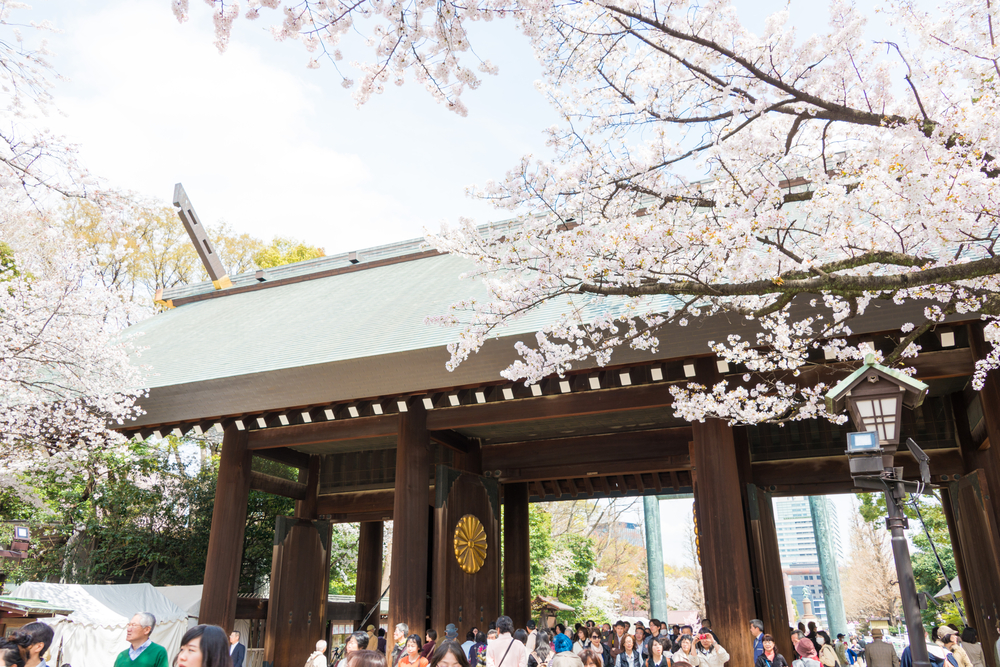
TOKYO — A Japanese Cabinet minister on Saturday visited a Tokyo war shrine that honors executed war criminals among others in a move that could reignite tensions with Japan’s neighbors ahead of President Barack Obama’s Asian tour.
Internal Minister Yoshitaka Shindo prayed at the Yasukuni Shrine, which is a flashpoint between Japan and its neighbors China and South Korea. They see Yasukuni as a symbol of militarism and repeated visits there by Japanese leaders as a lack of remorse over Japan’s wartime history.
But Shindo said he made the visit in his private capacity to pray for the Japanese soldiers who died in the battle of Iwo Jima, one of the most iconic battles of World War II.
“I renewed my commitment to never cause such a tragedy as I prayed for peace before the people who lost their lives in the war,” Shindo told reporters after praying, wearing a formal dark suit. “That’s what I do every time I visit the shrine.”
His visit came as a bit of a surprise because conservative lawmakers usually make their visits to the shrine during one of several annual festivals. But this year’s April 21-23 spring festival partially overlaps with Obama’s trip to Japan, apparently causing Shindo to make his visit on Saturday.
Obama’s April 23-24 visit to Japan is part of an Asian tour that also includes South Korea, the Philippines and Malaysia.
Prime Minister Shinzo Abe’s visit to the shrine in December has worsened ties with South Korea and China. Abe’s past remarks suggesting his revisionist views about Japan’s wartime history, and his national security policy plans aiming to give Japan bigger international defense roles, are also prompting caution from the neighbors.
Obama in late March helped to bring together Abe and South Korean President Park Geun-hye to sit down for a face-to-face meeting for the first time since they took office more than a year ago. The absence of such a meeting between the leaders of key U.S. allies in Asia was a deep concern for Washington.
Shindo is a grandson of a famous Imperial Army general, Tadamichi Kuribayashi, who served as commander on Iwo Jima in the final days of the battle there.
The 1945 battle claimed 6,821 American and 21,570 Japanese lives. About 12,000 Japanese and 218 Americans are still classified as missing in action.